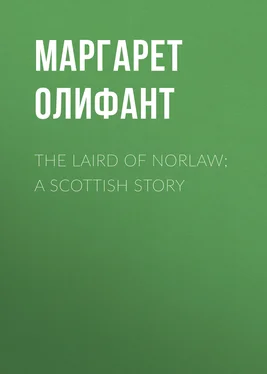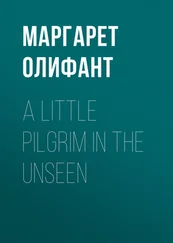Маргарет Олифант - The Laird of Norlaw; A Scottish Story
Здесь есть возможность читать онлайн «Маргарет Олифант - The Laird of Norlaw; A Scottish Story» — ознакомительный отрывок электронной книги совершенно бесплатно, а после прочтения отрывка купить полную версию. В некоторых случаях можно слушать аудио, скачать через торрент в формате fb2 и присутствует краткое содержание. Жанр: foreign_prose, literature_19, foreign_antique, на английском языке. Описание произведения, (предисловие) а так же отзывы посетителей доступны на портале библиотеки ЛибКат.
- Название:The Laird of Norlaw; A Scottish Story
- Автор:
- Жанр:
- Год:неизвестен
- ISBN:нет данных
- Рейтинг книги:3 / 5. Голосов: 1
-
Избранное:Добавить в избранное
- Отзывы:
-
Ваша оценка:
- 60
- 1
- 2
- 3
- 4
- 5
The Laird of Norlaw; A Scottish Story: краткое содержание, описание и аннотация
Предлагаем к чтению аннотацию, описание, краткое содержание или предисловие (зависит от того, что написал сам автор книги «The Laird of Norlaw; A Scottish Story»). Если вы не нашли необходимую информацию о книге — напишите в комментариях, мы постараемся отыскать её.
The Laird of Norlaw; A Scottish Story — читать онлайн ознакомительный отрывок
Ниже представлен текст книги, разбитый по страницам. Система сохранения места последней прочитанной страницы, позволяет с удобством читать онлайн бесплатно книгу «The Laird of Norlaw; A Scottish Story», без необходимости каждый раз заново искать на чём Вы остановились. Поставьте закладку, и сможете в любой момент перейти на страницу, на которой закончили чтение.
Интервал:
Закладка:
So saying, the impetuous girl rushed up the path, slowly followed by Patricia. It was one of the loveliest bits of woodland on the whole course of Tyne. Mosses and wild flowers, and the daintiest ferns known to Scotland, peeped out of every hollow—and overhead and around, stretching down half way across the river, and thrusting out, with Nature’s rare faculty of composition, their most graceful curves of foliage against the sky, were trees, not too great or ancient to overshadow the younger growth; trees of all descriptions, birches and beeches and willows, the white-limbed ash, with its green bunches of fruit, and the tender lime, with its honey blossoms. You could have almost counted every separate flash of sunshine which burned through the leaves, misty with motes and dazzling bright with that limitation; and yet the shadow overhead trembled and fluctuated with such a constant interchange, that the spot which was in shade one moment was in the brightest light the very next. The light gleamed in Joanna’s red hair, as she plunged along in her impetuous way towards the house, and fell in touches here and there upon the graceful little figure of her sister, in her close cottage bonnet and muslin gown, as Patricia came softly over the same road, book in hand. But we are bound to confess that neither of the two, perfectly accustomed and familiar as they were, found a moment’s leisure among their other thoughts to pause upon this scene; they went towards the house, the one after the other—Patricia with a due regard to decorum as well as to her nerves and feebleness of frame—Joanna totally without regard for either the one or the other; and both occupied, to the entire neglect of every thing else, with thoughts of their own.
The house of Melmar was placed upon a level platform of land, of a considerably lower altitude than this brae. Pausing to look at it, as neither Joanna nor Patricia did, on the rustic bridge which crossed the Tyne, and led from this woodland path into the smooth lawn and properly arranged trees of “the private grounds,” Melmar appeared only a large square house, pretentious, yet homely, built entirely for living in, and not for looking at. If Nature, with her trees, and grass, and bits of garden land, softening the angles and filling in the gaps, had done her best to make it seemly, the house was completely innocent of aiding in any such attempt. Yet, by sheer dint of persistence, having stood there for at least a hundred years, long enough to have patches of lichen here and there upon its walls, Melmar had gained that look of steadiness and security, and of belonging to the soil, which harmonizes even an ugly feature in a landscape. The door, which was sheltered by a little portico, with four tall pillars, in reality stone, but looking considerably like plaster, opened from without after the innocent fashion of the country. Running across the lawn, Joanna opened the door and plunged in, without further ado, into her father’s study, which was at the end of a long passage looking out upon the other side of the house. He was not there—so the girl came rushing back again to the drawing-room, the door of which stood open, and once more encountering her sister there, did her best to disturb the delicate nerves a second time, and throw Patricia out of breath.
This papa, whom Joanna had no hesitation about bearding in his own den, could not surely be such an ogre after all. He was not an ogre. You could not have supposed, to look at him, that any exaltation of enmity, any heroic sentiment of revenge, could lodge within the breast of Mr. Huntley, of Melmar. He was a tall man, with a high, narrow head, and reddish grizzled hair. A man with plenty of forehead, making up in height for its want of breadth. He was rather jovial than otherwise in his manner, and carried about with him a little atmosphere of his own, a whiff of two distinct odors, not unusual attendants of elderly Scotsmen, twenty years ago, reminiscences of toddy and rappee. He looked around with a smile at the vehement entrance of Joanna. He permitted all kinds of rudenesses on the part of this girl, and took a certain pleasure in them. He was not in the slightest degree an exacting or punctilious father; but not all his indulgence, nor the practical jokes, banter, and teasing, which he administered to all children, his own, among the rest, when they were young enough—had secured him either fondness or respect at their hands. They got on very well on the whole. Patricia pouted at him, and Joanna took him to task roundly when they differed in opinion—but the affection they gave him was an affection of habit, and nothing more.
“I’ve come to speak to you, papa,” cried Joanna. “I’ve just been hearing the whole story, every word—and oh, I think shame of you!—it’s a disgrace, it’s a sin—I wonder you dare look any of us in the face again!”
“Eh? what’s all this?” said Melmar; “Joan in one of her tantrums already? Three times in a day! that’s scarcely canny—I’ll have to speak to your aunt Jean.”
“Oh, papa!” cried Joanna, indignantly, “it’s no fun—who do you think would carry you to Dryburgh if somebody stopped your funeral? not one! You would have to stay here in your coffin and never be buried—and I wouldna be sorry! You would deserve it, and nothing better—oh, I think shame on you!”
“What? in my coffin? that’s a long look beforehand,” said Melmar. “You may have time to think shame of me often enough before that time, Joan; but let’s hear what’s all this about Dryburgh and a funeral—who’s been here?”
“Sinclair was here,” cried Joanna, “and he heard it all at Kirkbride—every word—and he says you had better not be seen there, after all you’ve done at Norlaw.”
“I am sure, papa, it’s very hard,” said Patricia. “You set everybody talking, and then people look strange at us. Mamma knows they do; and I could cry when I think that we’re going out to-morrow, and it would have been such a nice party. But now everybody knows about this, and nobody will speak to us—it’s too bad of you, papa.”
“What is it, my darling?” cried Mrs. Huntley, from her easy chair.
“Eh, fat’s this?” said Aunt Jean, wheeling round upon hers.
A popular commotion was rising; Melmar saw the premonitory tokens, and made his escape accordingly.
“Joan,” he said, pulling her ear as he passed her, “you’re an impudent monkey; but you may spare your wrath about Norlaw—I knew as little as you did that the man was dead—however, he is dead, and I don’t break my heart; but you can tell Sinclair I’ll tell him a word of my mind the next time I’m near Kirkbride.”
“Sinclair doesna care!” said Joanna; but Melmar pulled a thick curl of her red hair, and betook himself to his study, leaving the rising gust of questions to wear itself out as it might.
CHAPTER XIV
The drawing-room of Melmar was a large room tolerably well furnished. Three long windows on one side of the apartment looked out upon the lawn before the house, carefully avoiding the view “up Tyne,” which a little management might have made visible. The fire-place was at the upper end of the room, sparkling coldly with polished steel and brass, and decorated with a very elaborate construction of cut paper. The chairs were all covered with chintz in a large-flowered pattern, red and green—chintz which did not fit on well, and looked creasy and disorderly. A large crumb-cloth, spread over the bright-colored carpet, had the same disadvantage; one corner of it was constantly loose, folding up under the chairs and tripping unwary passengers. There was a round rose-wood table, sparely covered with books and ornaments, and another oblong one with a cover on it, which was meant for use.
By this last sat Mrs. Huntley, with some knitting in her lap, reclining in a cushioned chair, with her feet upon a high footstool. She was pale, with faint pink cheeks, and small, delicate features, a woman who had, to use her own expression, “enjoyed very bad health” all her life. She had very little character, not much animation, nothing very good nor very bad about her. It would scarcely have been true even to say that she loved her children; she was fond of them—particularly of Patricia—gave them a great many caresses and sweetmeats while they were young enough, and afterwards let them have their own will without restraint; but there did not seem enough of active life in her to deserve the title of any active sentiment. She was deeply learned in physic and invalid dietry, and liked to be petted and attended, to come down stairs at twelve o’clock, to lie on the sofa, to be led out for a little walk, carefully adapted to her weakness, and to receive all the little attentions proper to an invalid. Her exclusive pretensions in this respect had, it is true, been rather infringed upon of late years by Patricia, who sometimes threatened to be a more serious invalid than her mother, and who certainly assumed the character with almost equal satisfaction. However, Patricia was pretty well at the present moment, and Mrs. Huntley, supported by her maid, had only about half an hour ago come down stairs. She had a glass of toast-and-water on the table beside her, a smelling-bottle, an orange cut into quarters upon a china plate, a newspaper within reach of her hand, and her knitting in her lap. We beg Mrs. Huntley’s pardon, it was not knitting, but netting—her industry consisted in making strange, shapeless caps, bags, and window-curtains, which became excessively yellow after they were washed, and were of no use to any creature; for the refined art of crotchet was not then invented, nor had fancy-work reached that perfection which belongs to it now.
Читать дальшеИнтервал:
Закладка:
Похожие книги на «The Laird of Norlaw; A Scottish Story»
Представляем Вашему вниманию похожие книги на «The Laird of Norlaw; A Scottish Story» списком для выбора. Мы отобрали схожую по названию и смыслу литературу в надежде предоставить читателям больше вариантов отыскать новые, интересные, ещё непрочитанные произведения.
Обсуждение, отзывы о книге «The Laird of Norlaw; A Scottish Story» и просто собственные мнения читателей. Оставьте ваши комментарии, напишите, что Вы думаете о произведении, его смысле или главных героях. Укажите что конкретно понравилось, а что нет, и почему Вы так считаете.












